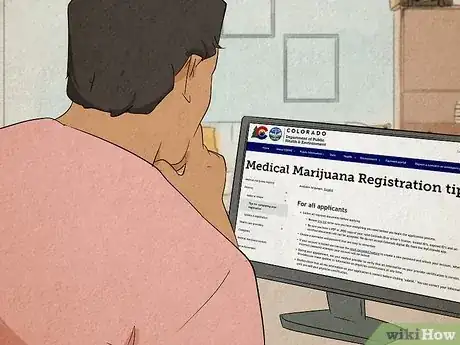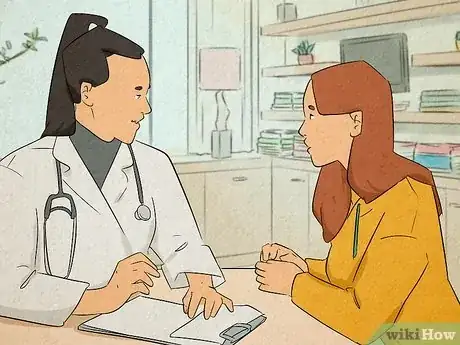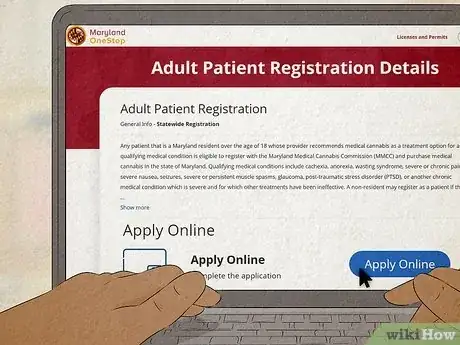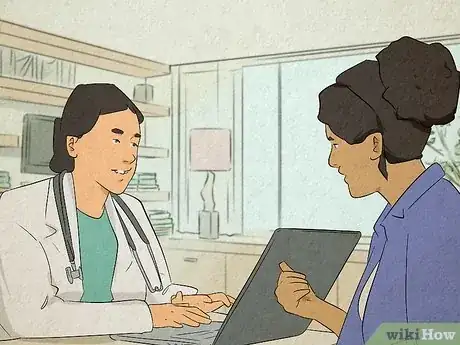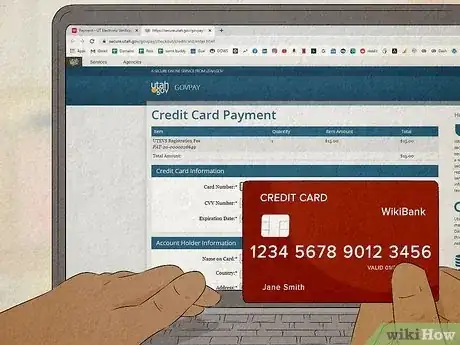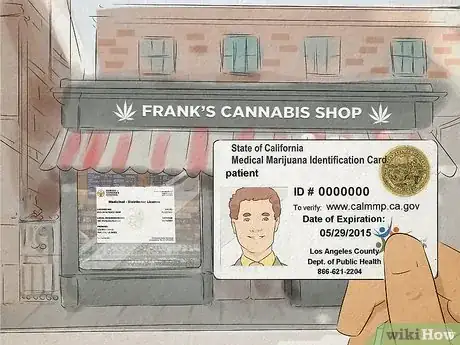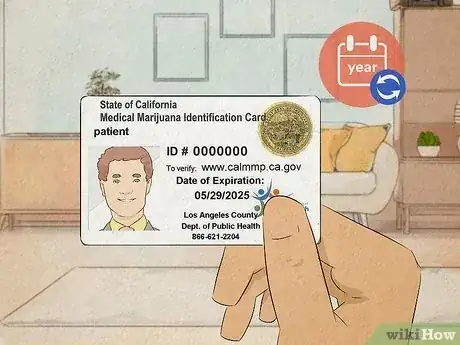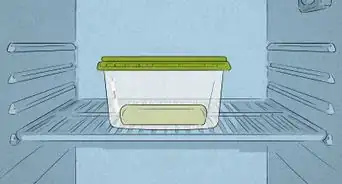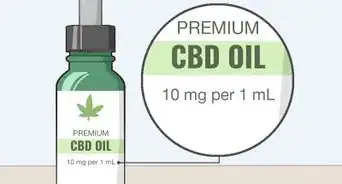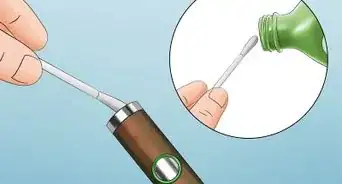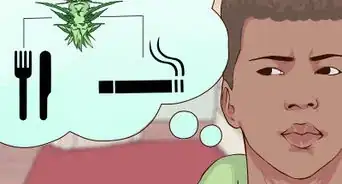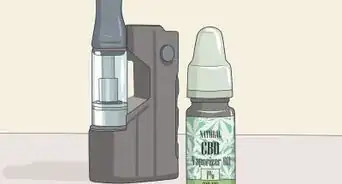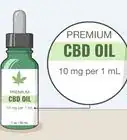This article was co-authored by Jamie Corroon, ND, MPH and by wikiHow staff writer, Jennifer Mueller, JD. Dr. Jamie Corroon, ND, MPH is the founder and Medical Director of the Center for Medical Cannabis Education. Dr. Corroon is a licensed Naturopathic Doctor and clinical researcher. In addition to clinical practice, Dr. Corroon advises dietary supplement and cannabis companies regarding science, regulation, and product development. He is well published in the peer-review literature, with recent publications that investigate the clinical and public health implications of the broadening acceptance of cannabis in society. He earned a Masters in Public Health (MPH) in Epidemiology from San Diego State University. He also earned a Doctor of Naturopathic Medicine degree from Bastyr University, subsequently completed two years of residency at the Bastyr Center for Natural Health, and is a former adjunct professor at Bastyr University California.
There are 13 references cited in this article, which can be found at the bottom of the page.
wikiHow marks an article as reader-approved once it receives enough positive feedback. In this case, several readers have written to tell us that this article was helpful to them, earning it our reader-approved status.
This article has been viewed 184,720 times.
If you have a chronic disease or medical condition, you might be thinking about trying medical marijuana. There's a growing body of research that marijuana can provide real relief from symptoms of many different medical conditions, including HIV/AIDS, cancer, epilepsy, ALS, Crohn's disease, and Alzheimer's disease.[1] Ready to try it? As of 2022, medical marijuana is allowed in 37 states, 3 territories, and the District of Columbia.[2] Read on to find out everything you need to do to apply for a medical marijuana license so you can get some from a licensed dispensary near you.
Steps
Warnings
- As of 2022, marijuana remains illegal at the federal level, including medical marijuana. If you're a federal employee subject to a drug testing program, having a medical marijuana card does not exempt you from penalties for a positive test result.[24]⧼thumbs_response⧽
- Most states don't recognize patients from other states. If you get a medical marijuana card in one state and then move to another, you'll likely have to go through the approval process again.[25]⧼thumbs_response⧽
References
- ↑ https://www.mayoclinic.org/healthy-lifestyle/consumer-health/in-depth/medical-marijuana/art-20137855
- ↑ https://www.ncsl.org/research/health/state-medical-marijuana-laws.aspx
- ↑ https://www.ncsl.org/research/health/state-medical-marijuana-laws.aspx
- ↑ https://www.pa.gov/guides/pennsylvania-medical-marijuana-program/#GetRegistered
- ↑ https://cannabis.ny.gov/practitioners
- ↑ https://www.safeaccessnow.org/talking_to_your_doctor_about_medical_marijuana
- ↑ https://www.healthy.arkansas.gov/programs-services/topics/information-for-physicians
- ↑ https://www.safeaccessnow.org/talking_to_your_doctor_about_medical_marijuana
- ↑ https://www.nj.gov/cannabis/medicinalcannabis/patients/
- ↑ https://www.ncsl.org/research/health/state-medical-marijuana-laws.aspx
- ↑ https://www.pa.gov/guides/pennsylvania-medical-marijuana-program/
- ↑ https://www.pa.gov/guides/pennsylvania-medical-marijuana-program/
- ↑ https://cannabis.ny.gov/practitioners
- ↑ https://cannabis.ny.gov/practitioners
- ↑ https://www.healthy.arkansas.gov/programs-services/topics/information-for-physicians
- ↑ https://www.pa.gov/guides/pennsylvania-medical-marijuana-program/
- ↑ https://www.nj.gov/cannabis/medicinalcannabis/patients/
- ↑ https://www.pa.gov/guides/pennsylvania-medical-marijuana-program/
- ↑ https://www.nj.gov/cannabis/medicinalcannabis/
- ↑ https://www.nj.gov/cannabis/medicinalcannabis/
- ↑ https://www.pa.gov/guides/pennsylvania-medical-marijuana-program/#RenewYourRegistration
- ↑ https://dph.illinois.gov/topics-services/prevention-wellness/medical-cannabis/mcpp-registry-card-application-fees.html
- ↑ https://www.nj.gov/cannabis/medicinalcannabis/patient-faqs/
- ↑ https://www.transportation.gov/odapc/medical-marijuana-notice
- ↑ https://www.ncsl.org/research/health/state-medical-marijuana-laws.aspx
About This Article
If medical marijuana is legal in your state, you can start the process of getting a license by contacting a doctor for an evaluation in which you’ll explain your condition and why you feel that medical marijuana is a good option for you. Once you have a doctor’s recommendation, fill out the necessary paperwork and submit your application online or by mail. Finally, don’t try to purchase medical marijuana until you have received your card! Scroll down for important information specific to your state!
